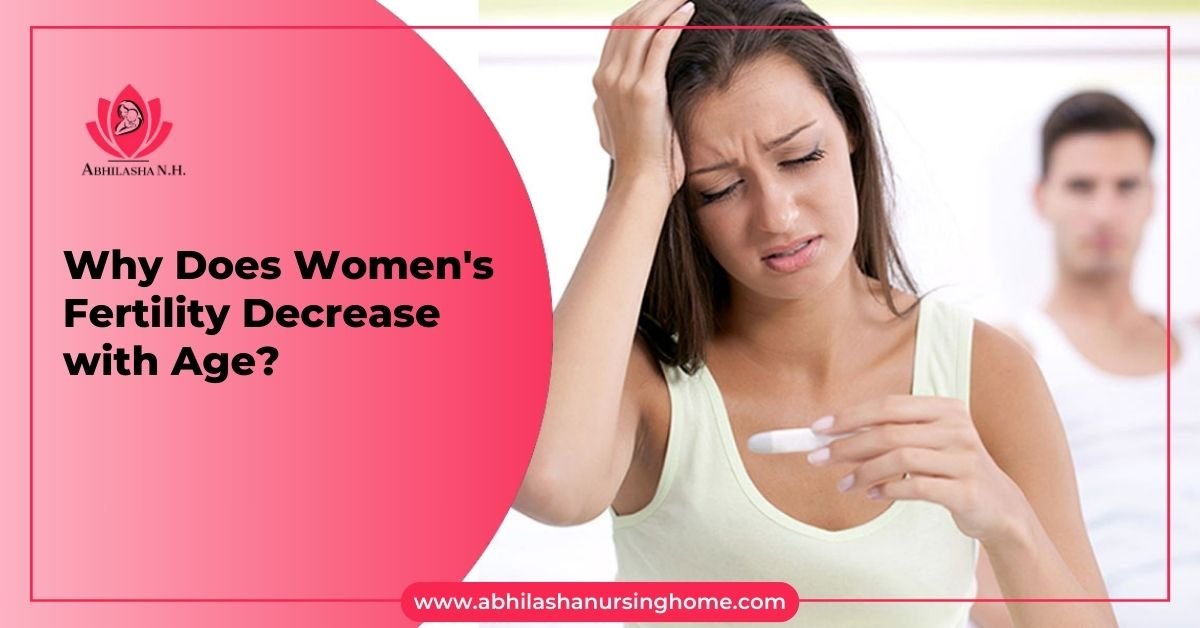Women’s fertility is influenced by a complex interplay of biological, hormonal, and reproductive factors, with age being a significant determinant of reproductive success. As women age, their fertility gradually declines, leading to decreased chances of conception and an increased risk of infertility. This comprehensive guide will explore why women’s fertility decreases with age and the implications for reproductive health.
1. Decline In Ovarian Reserve
One of the primary factors contributing to age-related fertility decline is a decrease in ovarian reserve, referring to the number and quality of eggs remaining in the ovaries. Women are born with a finite number of eggs, and as they age, the quantity and quality of these eggs diminish. This decline in ovarian reserve reduces the likelihood of successful fertilization and implantation, leading to decreased fertility with advancing age.
2. Diminished Egg Quality
In addition to declining ovarian reserve, aging also affects the quality of eggs produced by the ovaries. As women age, the likelihood of chromosomal abnormalities in eggs increases, leading to a higher risk of miscarriage and pregnancy complications. Diminished egg quality also contributes to lower rates of successful fertilization and embryo development, reducing the chances of conception with age.
Book an appointment with Dr. Abhilasha Prakash regarding all your fertility concerns.
3. Changes In Hormonal Levels
Hormonal changes associated with aging can also impact women’s fertility. As women approach menopause, there is a decline in the production of reproductive hormones such as estrogen and progesterone, which play crucial roles in ovulation and menstrual cycle regulation. These hormonal changes can disrupt the timing and quality of ovulation, affecting fertility and reproductive outcomes.
4. Increased Incidence Of Reproductive Disorders
Age-related changes in reproductive health can also increase the risk of certain reproductive disorders that affect fertility. Conditions such as endometriosis, polycystic ovary syndrome (PCOS), and uterine fibroids become more prevalent with age and can impair fertility by interfering with ovulation, implantation, or embryo development. These reproductive disorders contribute to age-related infertility and may require medical intervention to achieve pregnancy.
5. Decreased Uterine Receptivity
As women age, changes in the uterine environment may affect embryo implantation and pregnancy success. Factors such as decreased blood flow to the uterus, changes in endometrial thickness, and alterations in hormone receptor expression can impact uterine receptivity and the likelihood of successful embryo implantation. These changes contribute to age-related declines in fertility and may affect the outcomes of assisted reproductive technologies such as in vitro fertilization (IVF).
Book an appointment with Dr. Abhilasha Prakash regarding all your fertility concerns.
Women’s fertility decreases with age due to a combination of factors, including declining ovarian reserve, diminished egg quality, hormonal changes, increased incidence of reproductive disorders, and decreased uterine receptivity. While age-related fertility decline is a natural and inevitable aspect of reproductive aging, understanding these factors can help women make informed decisions about family planning and fertility preservation options. Consulting with best gynecologist Agra or fertility specialist can provide valuable insights and guidance for individuals navigating age-related changes in fertility and reproductive health.

